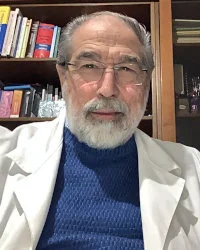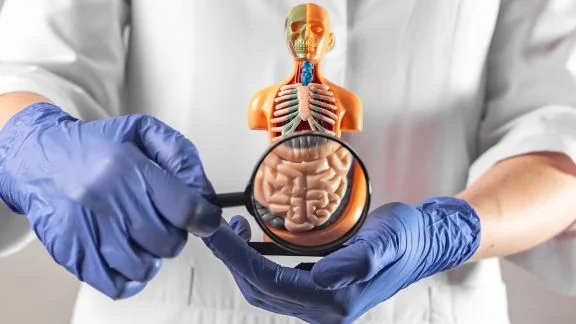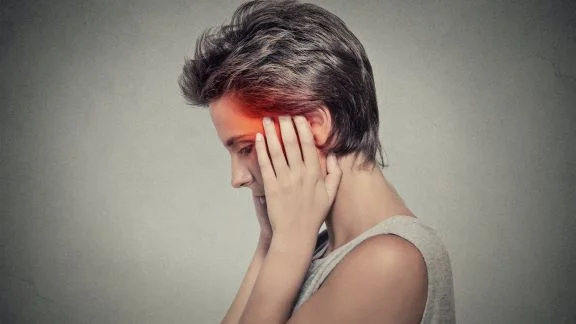
Come affrontare i problemi in modo costruttivo? Ecco come trasformare le difficoltà in opportunità grazie alla resilienza e alla crescita post-traumatica.

Alimentazione, immagine corporea e pratica sportiva: implicazioni psicologiche e psicopatologiche
![]() Dr.ssa Eleonora Riva
Dr.ssa Eleonora Riva
11.12.2025 - La pressione sociale sull’aspetto fisico può trasformare l’esercizio da pratica salutare a comportamento estremo, favorendo sovra-allenamento e disturbi alimentari. Scopri come riconoscere i segnali d

Avvicinare il medico e il paziente abbattendo le barriere socio culturali.

Aumentare la consapevolezza rispetto alle scelte sulla propria salute.

Promuovere la cultura medica per evitare l'autodiagnosi e l'autocura.
Oltre 497.3k utenti registrati si fidano di noi.
Gli Specialisti della Community, verificati alla registrazione, collaborano gratuitamente per offrire contenuti medico-scientifici accurati, veritieri e aggiornati.
I Referenti Scientifici, garanti delle Linee Guida, vigilano quotidianamente sulla qualità dei contenuti pubblicati.

Dr. Paolo Piana Urologo

Dr. Antonio Ferraloro Neurologo

Dr. Francesco Saverio Ruggiero Psichiatra

Dr. Giuseppe Santagati Chirurgo generale

Dr. Nicola Blasi Ginecologo

Dr. Mauro Colangelo Neurologo

Dr. Vincenzo Capretto Psicologo

Dr.ssa Carla Maria Brunialti Psicoterapeuta
Oggi già 5 risposte dai nostri medici specialisti!
Consulta l'archivio
Tra più di 1.6 milioni di consulti trova la situazione simile alla tua.
Hai un disturbo di salute?
Descrivi il tuo problema e chiedi un consulto ai nostri specialisti.
Sei uno specialista?
Aiuta gli utenti in difficoltà e rispondi ai loro dubbi.

Come affrontare i problemi in modo costruttivo? Ecco come trasformare le difficoltà in opportunità grazie alla resilienza e alla crescita post-traumatica.

Ictus: tipologie, sintomi e cause
Dr. Migliaccio†

Scoperto un nuovo organo: il mesentere
Dr. Quatraro

Dr.ssa Forlano

Acufeni: cosa sono e come riconoscerli?
Dr. Arnone

Come si calcola
il rischio reale di tumore al seno
Storie di ragazze fuori di seno
Il primo blog di Medicina Narrativa
2.971 utenti che hanno scritto 828.674 commenti, 55.245 pagine di contenuti equivalenti nel cartaceo a 1498 volumi da 225 pagine, con oltre 600.000 visualizzazioni mensili e 36.401.941 visualizzazioni totali
Frattura scafoide: 2 RX positive, TAC negativa. Esame strano e condotta dubbia?
Buongiorno, volevo esporvi il mio caso: caduto dalla bici domenica, mi reco in PS con dolore avambraccio, gomito e polso dx. mi riscontrano a rx una frattura chiusa scafoide dx. L...
Salve, ho fatto un esame del sangue per il testosterone visto che mi alleno sempre 4 volte a settimana, quindi ero curioso di sapere i miei livelli. Il risultato è di 7. 21 ng/mL, mi hanno...
Vasectomia: variazione eiaculato, è normale o preoccupazione?
Buongiorno Signori, ho un dubbio che mi sta assillando e creando una certa preoccupazione con riflessi sulla mia psicologia. Nonostante la mia età avanzata, per timore di affrontare nuove...
Rezum per iperplasia prostatica: come risolvere eiaculazione retrograda e disfunzione erettile?
buongiorno due anni fa ho fatto un intervento con rezum per ipb. da allora soffro di eiaculazione retrograda fastidiosa con perdita dell'erezione dopo primo Spasmo in quanto non provo piacere ma...